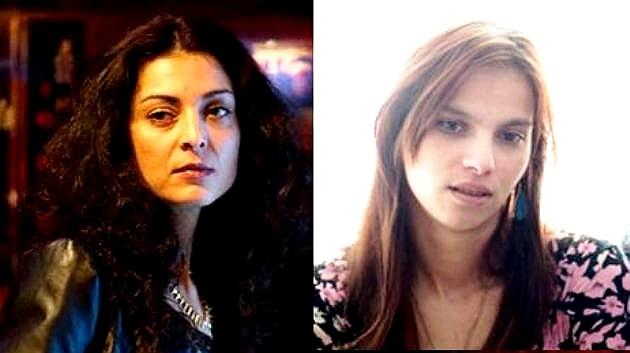Czech director: Roma are fighting mistrust and prejudice, they don't have much chance for a better life

Czech filmmakers have waited 16 years for a production from their country to be invited to the world’s most prestigious international film festival at Cannes. In 1998, the film "The Bed" ("Postel") was screened there and then, with the exception of a few student films during special screenings, Czech films have only been presented to the domestic film market.
This year Petr Václav’s "The Way Out" ("Cesta ven") made it into the collection of independent films at Cannes. News server Novinky.cz has published the following interview with him:
Q: The heroine of the film is a young woman who resists her "predestination" with great determination and vigor. Is the character based on a real Romani woman?
A: Yes, I have met more than one such person. Thanks to my first film, "Marian", I have gotten to know many Romani people and I have been through a lot with them. Milan Cifra, who played the character of Marian, was just a boy in 1996. Today’s he’s a grown man and now, after years of living abroad and being involved in other projects, I have returned to him and the others. We became friends, he commented on my screenplay, I showed him the first draft. I didn’t want to shoot myself in the foot with a film that isn’t true to its subject.
Q: What led you to return to the Romani theme?
A: When we filmed "Marian", I believed society would move in a better direction, that the position of Romani people would improve. Years later I determined the opposite was true. Romani people don’t have work, they are fighting mistrust and prejudice, they do not have much chance of a better life. It has long not been the case that they live on welfare. Legal loan-sharking by the banks exists here, there are gaming rooms set up inside residential hotels to tempt even those who do go to work. People often succumb to that, they have it in them. Who stands to gain and who stands to lose is obvious. All of this is not just a report about them, its a report about us as well.
Q: The representatives of the main female roles, Klaudia Dudová a Mária Ferencová-Zajacová, are with you in Cannes to take a look at the big world of film and then go home. Are you thinking about how it will affect them?
A: I thought about it back when I first made "Marian". We didn’t go to Cannes, but back then I took Milan away from his environment for a bit, I showed him a different life. Now years later we’ve met again and I know it was beneficial for him. Everyone comes home after traveling somewhere else for a few days with that experience inside them. No one can ever take away from these people the fact that they were at Cannes. I hope they continue as actors, but that sometimes doesn’t even happen for those who study acting.
Q: Festival-goers received the film very well. What interested them most during the discussion after the screening?
A: The fates of the protagonists, political and social problems, and racism. Also the theme of women in today’s world, which personally I consider the most essential and which is basically probably the main theme of the film. This story is not just about Romani people. I know a young black woman from a Paris suburb whose fate is practically the same as that of Žaneta in "The Way Out". It’s related to the phenomenon of the weakening of the role of men in contemporary society. Women stand up to difficult situations better. Guys have bigger psychological problems, for example, with unemployment – they lose their sense of dignity. That’s the worst that can happen.
Q: Do you know how your film got to Cannes, what was considered special about it?
A: Not really, and I’m not trying to find out. There’s no point. When you choose nine films out of 200, there must be a bit of luck involved. All I can believe is that they liked the subject matter and the way it was presented, that’s all. I’m glad we’re here for the actresses – they never acted before this, and it’s an experience they will remember the rest of their lives.